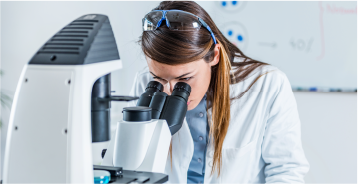Epigenetics and addiction – why quitting is more than just sheer willpower
 Health and Wellness
Health and Wellness
We need to process your personal information for you to interact with this website. We also use Cookies to enhance your experience. Please accept the Website Ts and Cs and Data Protection and Privacy Policy to fully access the website.
Wound healing requires more than just antiseptic cream and plasters. It’s an active effort that starts from within. Did you know that your physical and mental wellbeing can significantly affect how fast your wounds heal?
Good nutrition is essential to wound healing. A healthy diet provides the materials your body needs to build and repair tissue. Here's why good nutrition is essential for wound healing and how you can fuel your body to aid recovery.
How wounds heal – Understanding the phases
Wound healing isn’t one process. It’s four different processes that all require a lot of effort and time for the best possible outcome. Here’s how your body builds tissue and repairs wounds.
Haemostasis: Also known as blood clotting, this is the first phase of wound healing and begins almost immediately after injury. Blood vessels in the injured area constricts, and your body releases clotting factors to coagulate with fibrin, a protein that helps clot blood, resulting in a thrombus (a blood clot). This creates a temporary closure for the wound.
Inflammation: Phase two is inflammation. Your body’s immune system responds to the injury by sending white blood cells to the site to fight off bacteria and prevent infection. This process can last up to seven days for acute wounds, and even longer for chronic wounds. Inflammation is characterised by oedema (swelling), heat and pain at the wound site.
Proliferation: The building phase. Old, damaged tissue is replaced by granulation tissue (new connective tissue), and the wound undergoes angiogenesis (blood vessel formation) and epithelialisation (new skin that covers the wound).
Maturation (Remodelling): The final phase of wound healing may take months or even years, depending on the severity of the initial injury. Your body continually releases collagen to strengthen the new tissue and make it more flexible. The new tissue isn’t as strong as the old tissue it replaced and can be around 20% weaker.
What your body needs
Three tips for better wound healing
Aside from good nutrition, you can give your body the help it needs to function at its best.
Supplements: If you have specific nutrient deficiencies, consider supplements like collagen powder, multivitamins, and more. Speak to your healthcare provider first before starting any new supplement, as overdoing it can have the opposite effect.
Adequate calories: Your body needs energy to heal wounds. While you may not feel up to eating a lot when you are recovering, it’s essential that you give your body the fuel it needs.
Avoid alcohol and cigarettes: Smoking and excessive drinking can delay wound healing. Avoid both in totality if possible.
Mental wellbeing affects physical wellbeing
Stress and anxiety hurt your body. It can negatively impact the immune system and slow down the healing process. Rest, meditate and focus on your breathing of you’re feeling stressed or anxious. A psychologist can also help by teaching you how to centre yourself and work through any underlying concerns or stress triggers.
Your doctor may need to intervene
Your body is designed to be able to heal itself. If a wound is taking too long to heal, you may have a nutritional deficiency or an underlying health issue. Your GP can advise you on the best way to proceed and refer you to a specialist, if needed.
Remember, wound healing starts from within. So, fuel your body with everything it needs to heal itself so that you can go back to living the life you love.
References:
The four phases of wound healing. VOHRA Wound Physicians. 2020. Available here.
Wound Healing – Learn how to help wounds heal fast, safely and with a reduced risk of scarring. Elastoplast. Accessed 2024. Available here.
Dietary information to promote wound healing. NHS UK. Accessed 2024. Available here.
Nutrition for Wound Healing. Saint Luke’s. Accessed 2024. Available here.